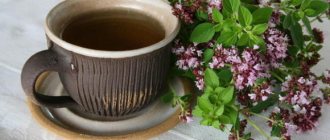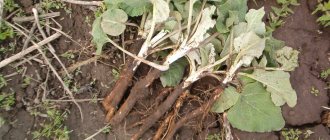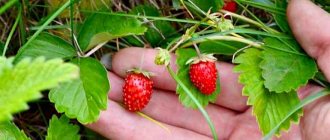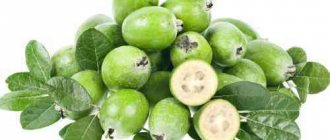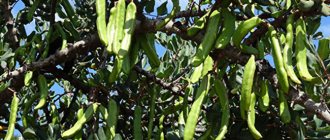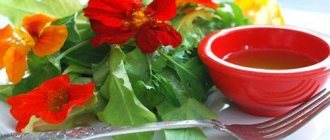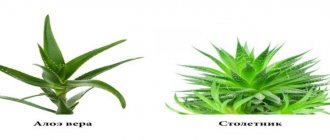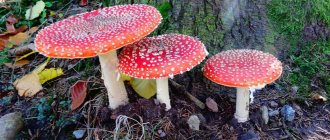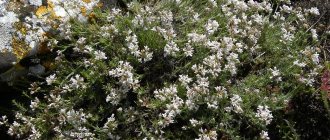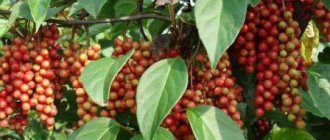Interesting Facts
Photo: Pixabay
Pumpkin came to the Old World after the discovery of America and very quickly became one of the most popular crops. In Russia, pumpkin has been bred and grown since the 16th century. It can be assumed that pumpkin was originally grown as a fodder plant.
In Kuban, special varieties of vegetables rich in carotene are sown to produce vitamin A concentrates.
In China, pumpkin is considered the first vegetable and almost the king of all plants. Pumpkin is often mentioned in ancient texts of the secret sciences. She was considered the source of life, a symbol of rebirth. Ancient Chinese Taoists considered pumpkin seeds to be the food of immortality.
The Indians saw the pumpkin as a cosmic eye from which the whole world emerged.
In ancient medicine, according to Avicenna’s descriptions, the nature of pumpkin is cold and wet. Avicenna classifies pumpkin as a nutritious food, but considers it harmful to the stomach of adolescents and young men.
Ancient doctors recommended pumpkin infusion to treat coughs and chest pain. Squeezed pumpkin juice with rose oil soothes earaches and treats sore throats.
Many oriental physicians of antiquity and Avicenna himself described pumpkin as a remedy that relieves increased sexual excitability in any form.
Botanical certificate
Pumpkin loves moist soil and sunlight. It grows well in warm climates, reproduces by seeds and is very thermophilic. It does not tolerate frost at all.
The plant literally spreads along the ground; the stems can reach five meters in length. They are weak, rough with spiny pubescence. The leaves are five-lobed and also rough.
Pumpkin blooms with bright large yellow single flowers. Flowering begins 35–60 days after emergence, and the fruits ripen on 75–135 days.
Pumpkin produces huge fruits; they can have completely different shapes: oval, cylindrical, round or elongated. Different varieties of pumpkin have different colors and shapes of fruits. The color can be green, yellow, orange, often with stripes or a spotted pattern.
The most delicious and healthy thing about pumpkin is its pulp. It is dense and crispy. It has a cream, yellow or light orange color.
Pumpkin seeds are flat, from one to three centimeters in length. Large and wide cotyledons are hidden under the white or creamy woody seed coat.
Pumpkin pulp and its seeds are used for food and medicinal purposes.
Pumpkin medicinal properties
Photo: Pixabay
In folk medicine, boiled and stewed pumpkin pulp is recommended for patients with tuberculosis, jaundice, anemia, hypotension, gout, cholecystitis. It is useful for constipation and as a diuretic for renal and hepatic edema.
Pumpkin cools and strengthens the body, so it is useful for people with a hot nature. Pumpkin dishes open blockages and have a diuretic effect, softening the intestines and acute fever.
Pumpkin pulp promotes the absorption of heavier foods. Pumpkin dishes are easily digestible, highly nutritious and very useful for the elderly, as well as people with impaired liver and kidney function.
A small amount of fiber and acids in pumpkin pulp is beneficial for patients suffering from gastrointestinal diseases. A high content of pectin has a positive effect on inflammation of the large intestine. The raw pulp of pumpkin fruits has a choleretic effect, improves intestinal function, and helps with constipation.
Pumpkin contains quite a lot of pectin, which helps eliminate cholesterol and chlorides. Pumpkin dishes are recommended as a good remedy for removing salts, toxins and radioactive elements from the body.
Pumpkin is useful for diseases associated with salt deposition: rheumatism, gout, osteochondrosis. To obtain a therapeutic effect, use the pulp of the fruit and pumpkin juice. Pumpkin juice is a very healthy dessert drink for the body; it dissolves and removes stones from the kidneys and gall bladder.
The benefits and harms of pumpkin for humans
It has been known since ancient times that pumpkins are a vegetable that is extremely beneficial for the body. Moreover, it is good for everyone, regardless of age and gender. What are the beneficial properties and contraindications of pumpkin? Let's figure it out.
Firstly, this culture is rich in vitamins and minerals.
So, among them there are:
- B vitamins,
- vitamins PP, C, A and E,
- in addition, it contains niacin,
- calcium, zinc, phosphorus, sodium, potassium, magnesium,
- Among other things, the vegetable also has a lot of fiber and not many calories.
Speaking about the positive effects of pumpkin, it should be noted that it not only helps strengthen vision, it also helps intestinal function and normalizes metabolism.
In addition, it is worth noting such properties of the vegetable as:
- strengthening blood vessels,
- lowering cholesterol levels,
- cleansing the liver and gallbladder,
- removal of toxins and wastes,
- normalization of kidney function and restoration of body tissues and cells.
Among other things, the vegetable has a beneficial effect on the immune system and helps faster recovery in case of illness.
What does pumpkin cure?
Pumpkin contains large amounts of iron, copper and zinc. This makes pumpkin one of the most valuable foods for cancer patients and patients with iron deficiency anemia. Pumpkin helps restore strength after serious illnesses.
The pulp of the vegetable promotes urination and does not irritate the kidney tissue. This is an excellent remedy for treating kidney and bladder diseases. Pumpkin helps cope with edema caused by cardiovascular diseases.
Pumpkin boasts low calorie content, which is why it is recommended for obesity. This vegetable is especially useful for atherosclerosis.
Traditional medicine uses pumpkin as a sedative. Pumpkin decoction with honey is recommended for insomnia and restless sleep. Pumpkin juice helps with toothache; it is dropped into the nose.
For more than two centuries, traditional medicine in many countries has used pumpkin seeds to treat worms. The seeds are non-toxic, there is no danger of overdose, they are convenient to use in everyday life, and they are tasty. Treatment of worms with pumpkin seeds is safe and easily tolerated by patients, including children.
To get rid of worms, the seeds are simply eaten, they are not processed in any way. They are chewed like seeds, but the best effect in treatment is achieved if the simplest dosage forms are prepared from the seeds.
The peculiarity of treatment with pumpkin is that it does not require the preparation of any medicinal infusions, decoctions or tinctures. In general, no special medicines are made from pumpkin. Pumpkin juice, its pulp, its seeds are simply eaten. The pulp can be boiled, stewed, fried, even baked and eaten as porridge.
Contraindications and harm of pumpkin
Even the most useful product may have contraindications. Pumpkin also has them. These include:
- gastrointestinal diseases,
- kidney and gallstones,
- diabetes.
Also, elderly people are not allowed to get carried away with this vegetable, and children under 3 years old should not be given a lot of it. But the main rule is still the same: moderation is necessary in everything. Therefore, even if you have no contraindications, you should not rely on pumpkin on an “industrial scale”. Then it will definitely not benefit anyone.
Pumpkin contraindications
Pumpkin has side effects. This is bloating, stomach pain and colic. Pumpkin is contraindicated for patients with a hypoacid form of gastritis and peptic ulcers of the stomach and duodenum.
To prevent intestinal colic, it is recommended to cook this vegetable with the addition of pomegranate juice, vinegar, garlic, pepper, cumin or mustard.
These products enhance the secretory function of the stomach and intestines. After adding spices, the digestion process of pumpkin improves and its negative properties, which can cause pain, colic and bloating, are prevented.
Pumpkin treatment recipes
Photo: Pixabay
✔ To treat prostatitis, it is recommended to drink 200 ml of pumpkin juice 3 to 4 times a day. Eat three tablespoons of peeled pumpkin seeds daily.
✔ For bladder inflammation, mix one glass of dried pumpkin seeds with one glass of hemp seeds. Grind the seeds, pour in, stirring with three glasses of boiling water, let it brew a little, strain. Take the resulting emulsion throughout the day.
✔ Fresh pumpkin juice from pumpkin pulp helps treat the liver and kidneys. You should drink one glass of juice per day.
✔ Regular consumption of pumpkin is an excellent preventive measure for dental caries. The daily dose of fluoride for a person is 1 mg; a person can receive this dose of fluoride along with 500–600 g of pumpkin.
✔ To treat anemia, patients are recommended to eat from 20 to 150 grams of boiled pumpkin several times a day.
✔ Pumpkin pulp can be applied for medicinal purposes for rashes, burns, eczema and pustules.
Useful and medicinal properties of pumpkin, decoctions and juice from pumpkin
Pumpkin is an autumn delicacy. Everything about a pumpkin is useful, from the seeds to the stem. Mexico is considered the home country of pumpkins. Previously, pumpkin was not only consumed as food, but also used to make dishes from it.There are a lot of recipes for making this product. It can be stewed, boiled, fried, baked, pickled, made into soups, compotes and salads. Pumpkin is very rich in vitamins. The seeds contain vitamins C and B1, fatty oils and organic acids. The pulp is famous for its large amount of fiber, calcium, iron and potassium content. Vitamins in the pulp include B1, B2, B5, C, A, E, PP. Pumpkin contains more carotene than carrots and also contains pectin. Pumpkin preparations will help with inflammatory processes, have soothing, vasodilating and healing properties. Pumpkin is an excellent product in the fight against worms. Normalizes sleep and is indispensable for those who have problems with the gastrointestinal tract. Pumpkin can be used as a diuretic and will help cleanse the entire body. This product can be consumed in any quantity, it will only be beneficial.
Medicinal properties of pumpkin
• If you have problems with the kidneys or liver, then half a kilo of raw pumpkin a day will help cleanse the body. • For heart disease, drink half a glass of pumpkin juice daily. • With impaired metabolism and swelling, a decoction of pumpkin stalk will help. • Boiled pumpkin in your daily diet will help cleanse your body of excess fluid, and boiled pumpkin will also help cope with swelling. • For cancer patients, it is recommended to eat pumpkin in any form and apply the boiled pulp to the tumor. • Pumpkin removes cholesterol from the body and has therapeutic effects on hypertension and atherosclerosis. Milk porridges are prepared from pumpkin with the addition of rice, millet or semolina. This kind of porridge is very useful for cholecystitis and pyelonephritis. It is recommended to consume pumpkin porridge a couple of times a day in a volume of 100 g. Pumpkin is also an indispensable product for people who are prone to stomach ulcers and constipation. • Take 100 g of porridge 3 times a day, while giving up sweets and starchy foods. • Milk pumpkin porridge diluted with water in a ratio of 1:2 will help reduce acidity. • Pumpkin juice in the amount of three glasses a day will cleanse the body of worms, relieve constipation and have a good effect on people who have problems with the liver and gall bladder. • By eating 1 kg of pumpkin in any form every day, you limit your body from liver diseases, constipation, bile ducts and worms. • Raw pumpkin will have a laxative effect. Pumpkin is considered a dietary product, so it is especially recommended to eat pumpkin for people prone to obesity. It will help remove salts from the body and improve intestinal motor function. Pumpkin decoctions • Pumpkin decoction with honey is a sedative that will ensure sound sleep. • Pumpkin infusion with lemon will help pregnant women cope with toxicosis. • A decoction of pumpkin flowers will have a healing effect, including for people with diabetes.
pumpkin juice
• Pumpkin juice will have an anti-inflammatory effect. Helps with burns and purulent skin diseases. For treatment purposes, compresses are made from the juice and applied to the affected areas. • Pumpkin juice compresses are also applied to tumors associated with cancer.
Pumpkin pulp
• It is recommended for all people to use a decoction of the pulp to prevent diseases. Can be used at any age. • For girls, pumpkin pulp can be used for cosmetic purposes. Make face masks.
Pumpkin cosmetic masks
Mask for dry skin
Boil the peeled pieces of pumpkin pulp and mash with a wooden spatula. Mix a spoonful of the resulting pumpkin puree with a tablespoon of olive oil. Apply to cleansed facial skin, leave for 20 minutes, and then rinse with warm water.
For oily skin with enlarged pores
Wipe your face with pieces of chilled pumpkin pulp. And don’t believe the nonsense that pumpkin turns your face orange. It just takes on a healthy shade.
In this story we only mentioned the medicinal value of pumpkin. In one of the following articles we will talk about preparing healthy and tasty dishes from this wonderful vegetable. We’ll share simple recipes for making pumpkin porridge, tell you how to bake it in the oven, and even tell you how to bake pumpkin pancakes! Follow our news.
Medicinal plants. Large illustrated encyclopedia This book is unique.
- This is also a guide to plants, both wild and cultivated, that can be used for medicinal purposes, as it contains their visual photographs and full characteristics.
- And a herbalist - thanks to a variety of recipes used for the most common diseases, with precise dosages and a detailed description of the preparation process.
- And a guide to collecting and preparing medicinal herbs.
- And even a guide to growing and caring for cultivated medicinal plants.
The author of this encyclopedia is T.A. Ilyina, a candidate of biological sciences, summarized her own experience and professional knowledge. Buy the electronic version Buy the paper version
Benefits for the body
These large orange fruits appeared on the European continent back in the 16th century. They have been preserved to this day; now pumpkins are grown both in vegetable gardens and on plantations on an industrial scale.
Important! The calorie content of orange pulp is low; 100 g of raw fruit contains only 25 kcal.
This vegetable is often included in various dietary dishes. At the same time, pumpkin is very nutritious and tasty. About 90% of the total mass of the fruit is water.
Regular consumption of pumpkin will bring enormous benefits to the body:
- cleansing the intestines of toxins and waste products;
- improving the functioning of the gastrointestinal tract;
- improved vision;
- restoration of water-salt balance;
- strengthening the walls of blood vessels;
- decreased blood pressure;
- improvement of metabolism;
- strengthening the immune system;
- removing excess moisture from the body;
- tissue regeneration;
- reduction of swelling;
- cell renewal;
- reducing the level of acidity in the body;
- gives energy.
Pumpkin contains a carotenoid, a substance that is very useful for visual acuity. It also contains fiber, which restores intestinal function. It does not cause bloating or gas, so it is safe.
In folk medicine, pumpkin is often used to cleanse the liver and gallbladder. Moreover, the condition of these organs will improve significantly, even after one fasting day on raw pumpkin gruel.
The fruit is useful for both men and women. Thanks to the substances in the composition, the immune system is strengthened and endurance increases. For men, pumpkin will help restore the functioning of the prostate gland, and for women, it will help slow down the aging process and maintain excellent condition of hair and nails.
Pumpkin is also used in cosmetology. In order to smooth out fine wrinkles, remove inflammation, and restore a fresh and radiant appearance to the skin, pumpkin masks are often used. In this case, the main requirement is regularity; they are used once every 2-3 days, for at least 7 weeks in a row.
For men
Pumpkin helps fight many male diseases:
- Pumpkin juice increases potency.
- Vitamin K stimulates the production of blood vessels and the synthesis of hormones.
- The seeds help fight prostatitis and prostate adenoma, as they contain a lot of zinc.
- Vitamins B and C remove excess salts, strengthen the immune system, and normalize blood pressure.
- Pectins help remove toxins and bad cholesterol and have antioxidant properties.
- Pumpkin restores energy after heavy physical activity.
For women
Pumpkin benefits women at any age:
- Pumpkin seed oil helps fight cervical erosion and inflammation.
- Mastopathy is treated with compresses made from raw grated pumpkin.
- With regular consumption of vegetables, reproductive functions improve and a long-awaited pregnancy occurs.
- During pregnancy, pumpkin relieves symptoms of toxicosis and eliminates nausea, making it easier for a woman to endure this period.
- During breastfeeding, the vegetable helps to enrich milk with valuable substances.
- Vitamin E prolongs youth, helps relieve the symptoms of menopause (lower back pain, chills, sweating, hot flashes).
- Carotene together with vitamin E have a detrimental effect on cancer cells.
Advice! Pumpkin should be consumed regularly to prevent the development of cancer.
- The vegetable makes you sleep better and normalizes the functioning of the central nervous system.
Pumpkin is added to many cosmetic products:
- cream;
- shampoos;
- lotions;
- soap;
- masks.
Skin products with pumpkin have a rejuvenating and smoothing effect:
- oily shine goes away;
- pores are cleaned;
- inflammation is relieved.
Pumpkin is recommended to be used to improve the structure of hair and nails. It makes hair shiny, thick and strong.
For children
Pumpkin is introduced into the diet of children from 4 months in the form of juices. From six months you can give pumpkin puree, and from 8 months you are already allowed to make pumpkin soups.
Important! Pumpkin is a source of many vitamins and minerals, unless your child develops an allergy to it.
- Vitamin A is beneficial for the eyes as a prevention and treatment for many diseases.
- Pumpkin strengthens the immune system and promotes proper bone growth.
- Seeds or pumpkin oil are given to children from 3 years of age as a remedy for helminths.
- Juice and decoction with honey normalize the functioning of the nervous system, helping to cope with stress and fatigue, improve sleep, attention and memory.
Boiled pumpkin should be included in the diet to improve the functioning of the gastrointestinal tract, cleanse the body of waste and toxins, as well as to prevent constipation and bloating.
Watch the video! About the benefits of pumpkin
